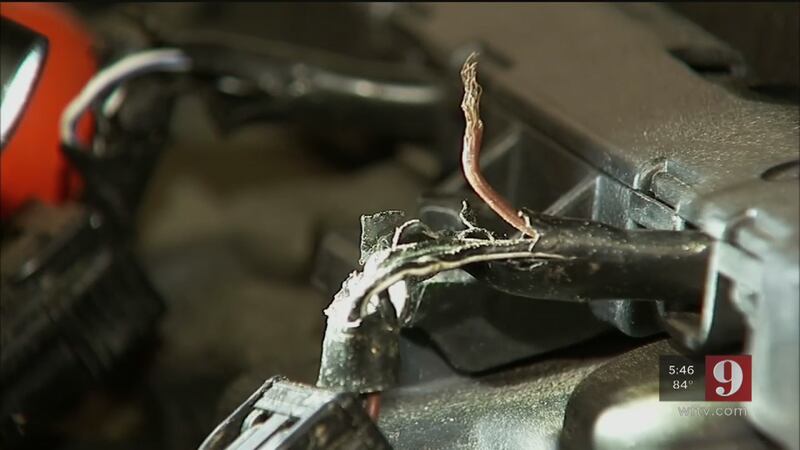ORLANDO, Fla. — They’re car repair bills you never expect--thousands of dollars to replace engine wiring destroyed by rats.
When her car broke down, Andrea Garden could not believe the cause: Rats ate her engine's wiring.
“I had no idea. No idea a rat could be in my vehicle,” she said.
Near Apopka, rats damaged three vehicles on Barry Reiter's property. “They did enough damage that you couldn't start the vehicle, it had to be towed,” said Reiter.
Repair experts said many car makers now use wire insulation made from soybeans. The wiring is biodegradable which is good for the environment, but tasty for rodents.
A rat found inside a Chevrolet Impala engine caused serious electronic failures. The rat was found stuck in between the wires.
"They chew down right through it and short out the harness and it could cost a thousand dollars to repair," car repair expert Jay Zembower said.
Soy wiring has been around for nearly 15 years, but it only became widespread in recent years and used by several major manufacturers.
Ana Rodriguez found her newer Toyota had $2,300 in wiring repairs blamed on chipmunks. “I know it's an issue and nobody's going to change my mind,” said Rodriguez.
This year, Honda owners filed a class action lawsuit, claiming soy wiring is defective, so repairs should be covered by warranties.
No manufacturer pays for repairs now and it can be expensive.
“Worst case we saw was an Acura, rats cut through a wiring harness, $4,000 in damages,” said Zembower.
There are ways to protect your vehicle. Experts said moth balls can work, and so can a special ‘no chew’ tape and sprays. Those could have prevented Barry Reiter's big repair bills.
“Probably $2,500 to $3,000 in damages,” said Reiter.
Honda’s responded in a court document, saying it can't be responsible for rodents that chew anything near them.
The anti-chew tape is available at many auto part chains and the anti-chew spray is at most farm supply stores.
Cox Media Group






